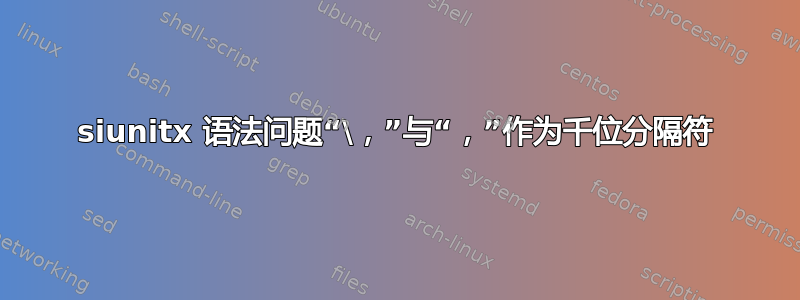
这个问题包含一个解决方案,但我真的想知道它为什么有效以及为什么“应该”有效的东西不起作用我认为我的 MWE 所说的就是:
\documentclass[12pt]{article}
\usepackage{siunitx}
% TeX Live 2015 (Ubuntu 18.04)
% siunitx Ver 2.6m
\sisetup{
group-digits=integer,
group-minimum-digits={3},
group-separator={,} % NOT "\,"
}
\begin{document}
After looking at a number of examples (and the
documentation) I could not got what I wanted
(3,000). If group-separator is set to \verb:{\,}:
the thousands separator is a space. But if set to
"," it works.
\begin{tabular}{ccc}
Code in document & & Typeset as\\
\hline
\verb:\num{3000}: & \num{3000} & 3,000\\
\verb:$\num{3000}$: & $\num{3000}$ & 3,000\\
\verb:\num{$3000$}: & does not work\\
\end{tabular}
\end{document}
答案1
该标记\,不是“转义逗号”,而是其本身的一个命令,表示“插入一个细空格(六分之一 em)。使用
group-separator={whatever}
组间间隔设置为whatever。因此
group-separator={,}
你会得到一个逗号,但是
group-separator={\,}
你会得到一个狭窄的空间。
只有逗号与括号一起才是强制性的,否则选项解析器会感到困惑。


